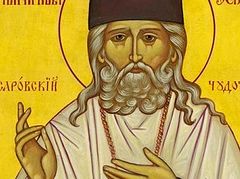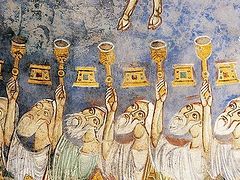Source: Preachers Institute
August 14, 2016
Among those sections that the Gospels of Matthew and Luke, independent of Mark, have in common, almost all are directly didactic. That is to say, those sections almost invariably consist of the explicit teachings of Jesus, with no attention to events in Jesus’ life. Those shared sections convey, for instance, the sort of material we find in Matthew’s Sermon on the Mount (Chapters 5-7) and Luke’s Sermon on the Plain (6:20-49). When, on the other hand, Matthew and Luke do tell a common story about Jesus’ life, Mark has that story too.
The clear exception to this pattern is Matthew’s and Luke’s narrative of the centurion who sought healing for his cherished servant (Matthew 8:5-13; Luke 7:1-10). As an account of a person beseeching the Lord on behalf of someone else, this shared narrative resembles other stories in the gospels, such as Jairus and the Syro-Phoenician woman praying for their daughters (Mark 5:23; 7:24-30), and another man and a centurion pleading for their sons (9:17; John 4:46-53). These are all accounts of intercessory prayer on behalf of loved ones, especially parents praying for their children.
Such stories surely had a great influence on the patterns of Christian intercessory prayer. We note, for instance, that the petitions in these accounts are addressed to Jesus. Although in Jesus’ specific teaching about prayer, the normal emphasis was on prayer addressed to the heavenly Father (Luke 11:2) in Jesus’ name (John 15:16), the emphasis is different in these particular gospel stories. One of their singular values is that they unambiguously answer a practical question that might arise among Christians, namely,
“If one of your children gets sick, is there some special Trinitarian protocol to follow, or is it all right just to take the problem right to Jesus?”
However, the idea of taking one’s problems “right to Jesus” is surely not to be understood in the sense of foregoing the mediating prayer of others. It is not as though the unique mediation of Jesus our Lord (1 Timothy 2:5) excludes certain saints from mediating on behalf of other saints, and these various Gospel stories are the proof of it. In fact, it is the entire point and the whole business of the foregoing stories to validate such mediation. This is called intercessory prayer.
To see how this works out, let us return to the story of the centurion pleading on behalf of his servant. If we compare the differing accounts of this event in Matthew and Luke, we first observe that Matthew’s is the shorter and simpler version. In this account the centurion simply goes to Jesus, requesting that the Lord speak the commanding word, so that the servant will be healed. It takes only six verses.
In Luke, however, the story requires ten verses and is considerably more complicated. First, the centurion himself does not approach Jesus directly. He sends some friends who will speak for him. Now this is interesting, because it introduces another level of mediation. The friends are interceding for the centurion, who is in turn interceding for his servant. We have here the beginnings of a prayer list, as it were.
Then, when Jesus starts moving towards the centurion’s home, the latter dispatches still another group of friends, who will speak the famous words that characterize this story:
“I am not worthy that You should enter under my roof.”
It is surely significant that the centurion does not speak these words, deeply personal as they are, to Jesus directly. Others say them to Jesus on the centurion’s behalf. In Luke’s version of the story, in fact, there is no face-to-face encounter of the centurion with Jesus at all. The centurion’s faith is conveyed by those he chooses to intercede for him.
Finally, in Luke’s version of the story, there is a striking parallel, surely deliberate, between this centurion and Cornelius in Chapter 10 of the Acts of the Apostles. Both of these centurions send others to speak on their behalf, and in each case the one solicited—Jesus in the first and Simon Peter in the second—goes immediately to respond to the need. At this point the two stories start to form a contrast.
In the first instance the centurion, wanting to spare Jesus the uncleanness of entering a gentile house, solicits His aid from a distance.
In the case of Peter and Cornelius, however, the barrier between Jew and gentile has now been removed forever, and Peter comes to his home.




